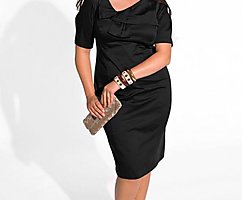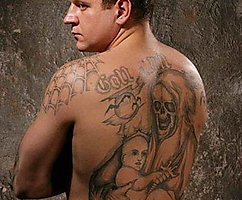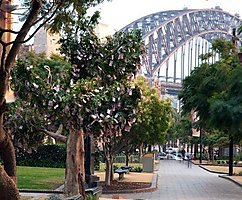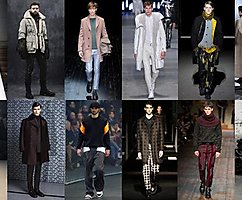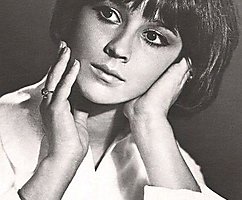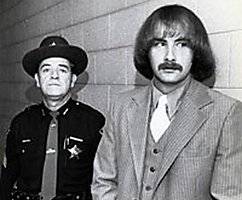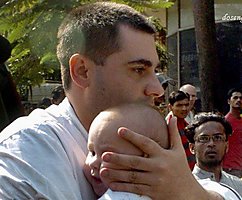How the deficit
 Bashny.Net
Bashny.Net
Market deficit - namely the so-called fully happened - called uncompensated excess of demand over supply. Simply put, this is where the money is there, the desire to buy something to eat, and nothing to buy. Nothing just yet. In a country dominated by the planned economy, and the descent from the top plan oblige manufacturers to produce a huge amount of goods, in fact, no one is not particularly relevant. This is often necessary, useful things simply are not done at all, or were made in such minute amounts that their elementary was not enough. This gave rise to a deficit.
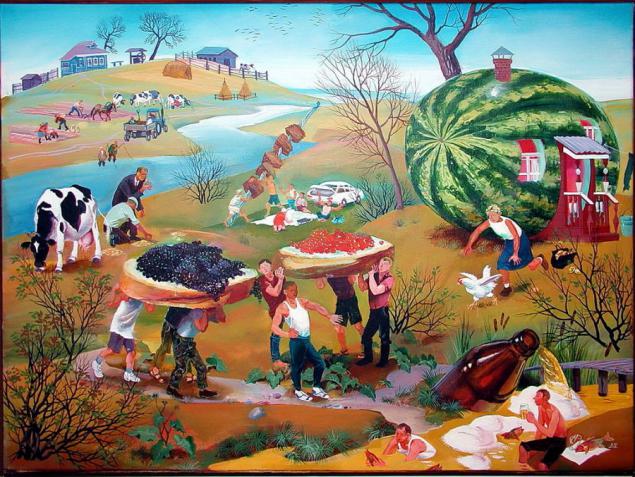
essence of the phenomenon
Already in the 70 years the Soviet Union with his head faced a wave of consumerism. The people engaged in the construction of an elementary tired "bright communist Never" and decided to still make an effort to, to live more or less human. The official media tried to deny it until recently, arguing that consumerism and materialism can exist only in the decaying bourgeois West. But when the phenomenon has taken such proportions that it was impossible to continue to hide in the press have had to start a campaign against "bourgeois materialism." To sense this was not enough, by the time the Soviet Union had already emerge the worst option of the consumer society - a society of consumption without themselves commodities. People stretched like manna from heaven for everything foreign. For chewing gum, jeans, glossy magazines. Propaganda day taldychu, about the corrupting influence of the West, about the fact that corruption and degradation of morals, but the Soviet people stubbornly showed consciousness and stretched for all foreign and shiny as a mirror for the Papuans.
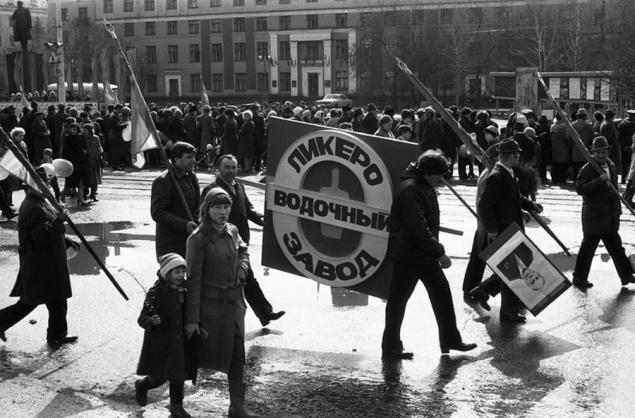
What was the deficit
The list of things deficient strongly dependent on local conditions. As a general rule, the farther away from Moscow and Leningrad, the deficit was more serious.
Television "Birch" - the pioneers of color televizorostroeniya, the brainchild of the convention and a by-product of the strategic rocket. The first designers of the TV - the most real rocket men, as does the issue of "birch" is engaged in the most secret department in the Soviet Union.
Refrigerators "Minsk" - the first in which used revolutionary technology - magnets in the door rubber gasket. Minsk is easy to open and close locks effortlessly. For the creation of "Minsk-4" most elegant in the series - one of the creators even awarded a valuable prize - a car! And most importantly - "Minsk" is very suitable for small size of the Soviet apartments.
These are ordinary citizens to know the plant "Mayak" he radios, stereo tape and scarce first dvuhkassetnikam. A narrow specialists, he was known as number 356 company, produces electronic equipment for military purposes. Almost all appliances of the USSR was produced solely as a by-product of the defense industry. Every enterprise, producing parts for missiles, tanks and aircraft had 'tied' to produce and consumer goods. TVs, radios, tape recorders.
Cars. To buy a brand new "Zhiguli", had to stand in line to purchase. No, not to the line at the store. Get up in the queue, or in large enterprises, or in-store "Sports" (yes, there were trading machines), and waited. They waited years, sometimes decades. Often, no waiting.
Crystal. Were pokazatelstvom individual family wealth. The Large Live basins is in the wall, the richer the family.
Furniture. The same situation. The object of lust and rage were "wall" (preferably - Czech pr-va), which determined a special interior design.
White goods. Any. Special profit was considered "snatch" somewhere to pull import (FRGeshny, for example) or a vacuum mixer.
Wallpaper, tiles, sanitary ware. And also - everything else you need for repairs in the apartment. Most business travelers instead ordered sausage wallpaper.
Clothing and shoes. In principle, this particular problem was not. But ... the shabby appearance and quality of the products of the Soviet light industry certainly many remember (but sometimes things were surprising quality). Clothes come in large quantities, and so all went in the same coats, jackets, shoes and so on. D. Imported clothing could get the "black marketeers" or acquaintances, "racing in zagranku" 2-3 price.
Audio cassettes, records overseas, especially - "not relevant to the communist way of thinking," performers. And then all. Also - radio.
Products. Especially delicious - smoked sausage (though it can be (at a higher price) in the co-operative stores in the restructuring), salmon, ham, natural instant coffee, eggs, lemons, bananas and canned pineapples, sprats. "Get" special for the holidays.
Alcohol. He became a deficit after the announcement of Gorbachev's anti-alcohol campaign.
Sometimes a deficit in a particular region (up to the regional scale) could suddenly become some items, usually commercially available, such as laundry soap. And this could continue for several months, during which the goods, or absent, in principle, or appear suddenly, in small amounts, in some unexpected places, and then rushed to the whole area.
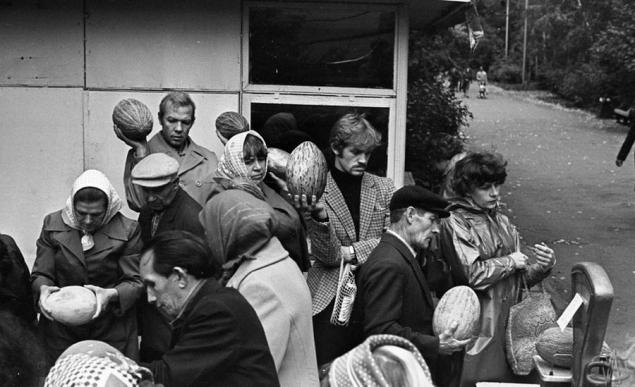
As a "get" deficit
A scarce commodity in the Soviets did not purchase - they "get". This is a very special kind of economic relations, has not yet been described in any textbook. Mere mortals to get a scarce commodity was not easy. It helps to have friends and acquaintances who have access to it. Especially preferred in this regard are:
Employees of trade - it was enough to simply "hold" product and sell it for a higher price, or "right people" with the "back door." Particularly unfortunate still caught, imprisoned and shown in the "wick". But the phenomenon flourished.
Party officials (nomenclature) and employees' bodies. " For them, there were specialty stores and "table of orders».
Merchant seamen, who went abroad, and the military, receives the goods under the PX.
"Speculators." Private traders are a scarce commodity, often - import. What is now called the honest business, in Soviet times it was considered a serious criminal offense for which you can receive a considerable period. So the guys have worked quietly and go out to them could only be through a friend. The merchants, "cooked" jeans with a lot of his own glued "labels", plates, rags foreign, imported alcohol, "American zhuvachku" Turkish production.
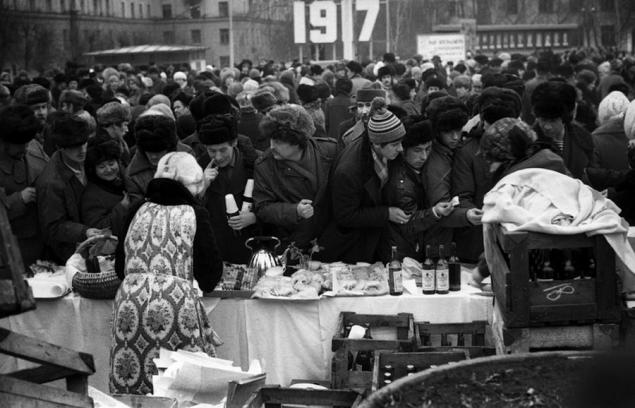
Ordinary citizens could catch a deficit if:
Product is released in a random store. This, as everyone knew, happened more often at the end of the month (presumably for the rapid implementation of the plan shortfalls). Basically, that's all.
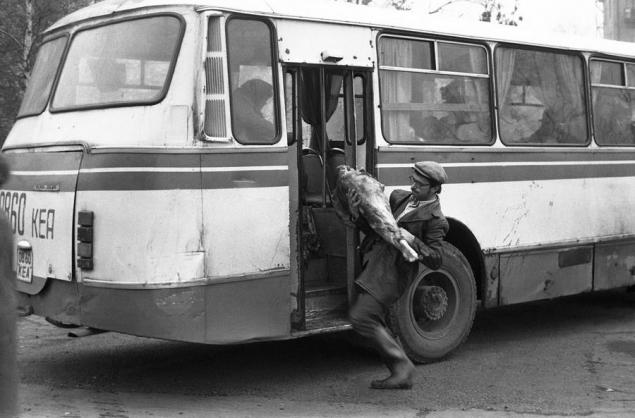
Brief Dictionary
Avoska - stretch mesh bag. When empty, without content, the size of a wallet, but as zapihivaniya in her products, she stretched to incredible sizes.
In one hand - restrictions on the purchase of goods. When you buy scarce goods at the request of the administration of the store or at the request of participants in the queue could be a restriction on the amount of goods that could be purchased by one person.
"You were not here" - the answer participants turn to the person who has departed on time from its queue and missed the moment when the man who was standing behind him and bought the goods left.
"Where did you get?" - A question that a Soviet man asked another Soviet man, when he saw he was holding a string bag with some deficiency.
Quality Mark - a special character that is assigned to goods of higher quality (or rather, normal quality).
Illiquid assets - many Soviet household goods that the Soviet people did not want to buy. Illiquid assets generally create the illusion of fullness Soviet department store.
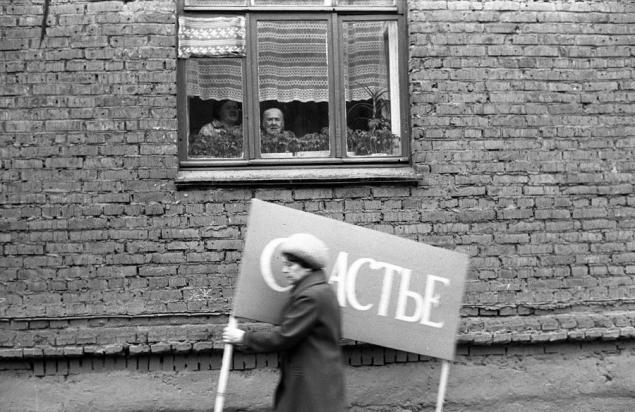
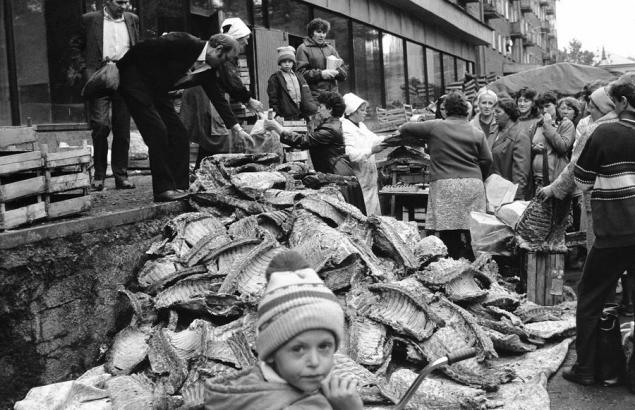

essence of the phenomenon
Already in the 70 years the Soviet Union with his head faced a wave of consumerism. The people engaged in the construction of an elementary tired "bright communist Never" and decided to still make an effort to, to live more or less human. The official media tried to deny it until recently, arguing that consumerism and materialism can exist only in the decaying bourgeois West. But when the phenomenon has taken such proportions that it was impossible to continue to hide in the press have had to start a campaign against "bourgeois materialism." To sense this was not enough, by the time the Soviet Union had already emerge the worst option of the consumer society - a society of consumption without themselves commodities. People stretched like manna from heaven for everything foreign. For chewing gum, jeans, glossy magazines. Propaganda day taldychu, about the corrupting influence of the West, about the fact that corruption and degradation of morals, but the Soviet people stubbornly showed consciousness and stretched for all foreign and shiny as a mirror for the Papuans.

What was the deficit
The list of things deficient strongly dependent on local conditions. As a general rule, the farther away from Moscow and Leningrad, the deficit was more serious.
Television "Birch" - the pioneers of color televizorostroeniya, the brainchild of the convention and a by-product of the strategic rocket. The first designers of the TV - the most real rocket men, as does the issue of "birch" is engaged in the most secret department in the Soviet Union.
Refrigerators "Minsk" - the first in which used revolutionary technology - magnets in the door rubber gasket. Minsk is easy to open and close locks effortlessly. For the creation of "Minsk-4" most elegant in the series - one of the creators even awarded a valuable prize - a car! And most importantly - "Minsk" is very suitable for small size of the Soviet apartments.
These are ordinary citizens to know the plant "Mayak" he radios, stereo tape and scarce first dvuhkassetnikam. A narrow specialists, he was known as number 356 company, produces electronic equipment for military purposes. Almost all appliances of the USSR was produced solely as a by-product of the defense industry. Every enterprise, producing parts for missiles, tanks and aircraft had 'tied' to produce and consumer goods. TVs, radios, tape recorders.
Cars. To buy a brand new "Zhiguli", had to stand in line to purchase. No, not to the line at the store. Get up in the queue, or in large enterprises, or in-store "Sports" (yes, there were trading machines), and waited. They waited years, sometimes decades. Often, no waiting.
Crystal. Were pokazatelstvom individual family wealth. The Large Live basins is in the wall, the richer the family.
Furniture. The same situation. The object of lust and rage were "wall" (preferably - Czech pr-va), which determined a special interior design.
White goods. Any. Special profit was considered "snatch" somewhere to pull import (FRGeshny, for example) or a vacuum mixer.
Wallpaper, tiles, sanitary ware. And also - everything else you need for repairs in the apartment. Most business travelers instead ordered sausage wallpaper.
Clothing and shoes. In principle, this particular problem was not. But ... the shabby appearance and quality of the products of the Soviet light industry certainly many remember (but sometimes things were surprising quality). Clothes come in large quantities, and so all went in the same coats, jackets, shoes and so on. D. Imported clothing could get the "black marketeers" or acquaintances, "racing in zagranku" 2-3 price.
Audio cassettes, records overseas, especially - "not relevant to the communist way of thinking," performers. And then all. Also - radio.
Products. Especially delicious - smoked sausage (though it can be (at a higher price) in the co-operative stores in the restructuring), salmon, ham, natural instant coffee, eggs, lemons, bananas and canned pineapples, sprats. "Get" special for the holidays.
Alcohol. He became a deficit after the announcement of Gorbachev's anti-alcohol campaign.
Sometimes a deficit in a particular region (up to the regional scale) could suddenly become some items, usually commercially available, such as laundry soap. And this could continue for several months, during which the goods, or absent, in principle, or appear suddenly, in small amounts, in some unexpected places, and then rushed to the whole area.

As a "get" deficit
A scarce commodity in the Soviets did not purchase - they "get". This is a very special kind of economic relations, has not yet been described in any textbook. Mere mortals to get a scarce commodity was not easy. It helps to have friends and acquaintances who have access to it. Especially preferred in this regard are:
Employees of trade - it was enough to simply "hold" product and sell it for a higher price, or "right people" with the "back door." Particularly unfortunate still caught, imprisoned and shown in the "wick". But the phenomenon flourished.
Party officials (nomenclature) and employees' bodies. " For them, there were specialty stores and "table of orders».
Merchant seamen, who went abroad, and the military, receives the goods under the PX.
"Speculators." Private traders are a scarce commodity, often - import. What is now called the honest business, in Soviet times it was considered a serious criminal offense for which you can receive a considerable period. So the guys have worked quietly and go out to them could only be through a friend. The merchants, "cooked" jeans with a lot of his own glued "labels", plates, rags foreign, imported alcohol, "American zhuvachku" Turkish production.

Ordinary citizens could catch a deficit if:
Product is released in a random store. This, as everyone knew, happened more often at the end of the month (presumably for the rapid implementation of the plan shortfalls). Basically, that's all.

Brief Dictionary
Avoska - stretch mesh bag. When empty, without content, the size of a wallet, but as zapihivaniya in her products, she stretched to incredible sizes.
In one hand - restrictions on the purchase of goods. When you buy scarce goods at the request of the administration of the store or at the request of participants in the queue could be a restriction on the amount of goods that could be purchased by one person.
"You were not here" - the answer participants turn to the person who has departed on time from its queue and missed the moment when the man who was standing behind him and bought the goods left.
"Where did you get?" - A question that a Soviet man asked another Soviet man, when he saw he was holding a string bag with some deficiency.
Quality Mark - a special character that is assigned to goods of higher quality (or rather, normal quality).
Illiquid assets - many Soviet household goods that the Soviet people did not want to buy. Illiquid assets generally create the illusion of fullness Soviet department store.


Tags
See also
Facts about the Moon
As in the past, Russian answer to the insult foreigners (9 photos)
How to build houses in the US (70 photos)
Sweets of the Soviet Union (8 photos)
Gargoyles (25 photos)
10 interesting facts from the life of Sigmund Freud (11 photos)
As in 1937, there was almost a Soviet "McDonald's" (10 photos)
Advertising that saved Apple
Fight on Damanskii (13 photos)
How special effects for the movie "Terminator 2: Judgment Day"
